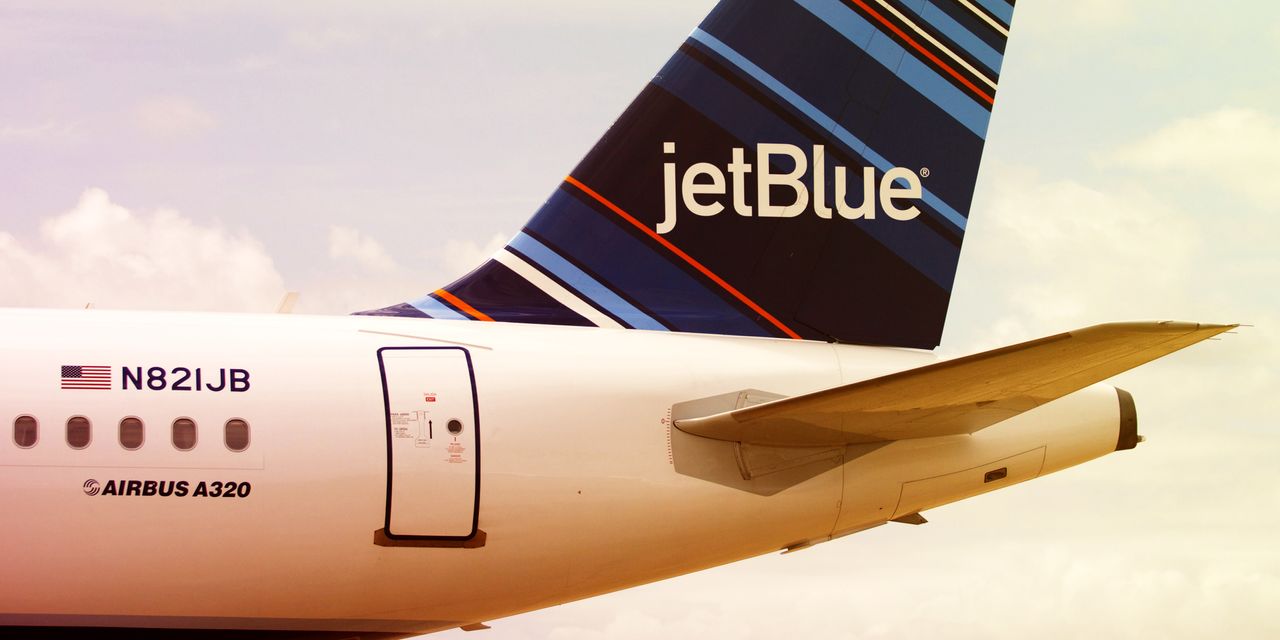JetBlue Airways
could raise airfares on certain routes by up to 40% if its planned merger with
Spirit Airlines
is approved, according to internal estimates inadvertently revealed in court filings.
The revelations could damage
JetBlue’s
(JBLU) prospects of winning its case against the Justice Department, which is suing to block the $3.8 billion deal that would create the fifth-largest U.S. airline.
The documents, filed in a separate consumer lawsuit, appear to support the DOJ’s key argument that the merger will result in higher fares.
Lawyers representing a group of travelers filed documents earlier this week, but an error, first reported by legal news site Law360, meant that redacted information could be viewed if pasted into a new document.
JetBlue plans to hike fares on aircraft acquired from Spirit (SAVE) by at least 24%, with some as high as 40%, the documents showed.
A JetBlue spokesperson said the redacted text was written and produced by the plaintiffs’ lawyers, and “essentially represents the plaintiff’s ‘spin’ on confidential evidence they have reviewed.”
“The factual evidence, when presented in a full and complete picture, will demonstrate that JetBlue intends for the merger with Spirit to increase competition and help lower fares across the board,” they added.
One possible explanation for what has been disclosed is that Spirit offers very low fares, but typically has much higher additional fees for extras, such as baggage. If JetBlue ends up dropping the fees for extras on Spirit flights so they are all in tune, then the base fare will likely have to rise to make up the difference. But it may not mean passengers end up paying more in total.
For example, a one-way ticket next month from Las Vegas to Los Angeles—a route shared by the two airlines—currently costs $27 with Spirit and $55 with JetBlue, according to a quick online search.
But if passengers want to take a carry-on bag with them for the flight, they would actually end up paying less on JetBlue.
For just $30 more, JetBlue will give you seat selection and a carry-on bag—so in total, that’s $85.
Whereas Spirit will charge $62 for a carry-on bag for that flight, according to its website, taking the total price to $89. Choosing a seat on Spirit can cost anywhere between $1 and $200.
While the botched filing doesn’t look great for JetBlue, or for consumers, the airline will at least get the chance to explain how the plans to raise fares are being taken out of context, as it puts forward its case when the DOJ’s lawsuit comes to trial in October.
Winning the case against the DOJ has taken on greater importance for JetBlue since it ended its alliance with
American Airlines
(AAL) last month. The carrier opted not to appeal against a court ruling ordering the pair to unwind their partnership in the New York and Boston areas.
The alliance formed a key part of the DOJ’s complaint—that the deal would essentially merge the operations of three airlines in the Northeast. JetBlue said terminating the partnership renders the DOJ’s concerns “entirely moot.”
Sacrificing the partnership with American to boost the odds of the Spirit merger being approved probably made sense. But if the Spirit deal is blocked it leaves JetBlue without two potential sources of growth.
JetBlue slashed its full-year earnings guidance earlier this month, and said it doesn’t expect to post a profit in the third quarter. The end of the American tie-up was cited as a major factor, along with a slowdown in domestic demand.
The stock has fallen 34% from its 2023 high, reached on July 5, and is now 5% down this year. It’s in desperate need of some good news but it’s hard to see where that might come from right now.
Write to Callum Keown at [email protected]
Read the full article here



